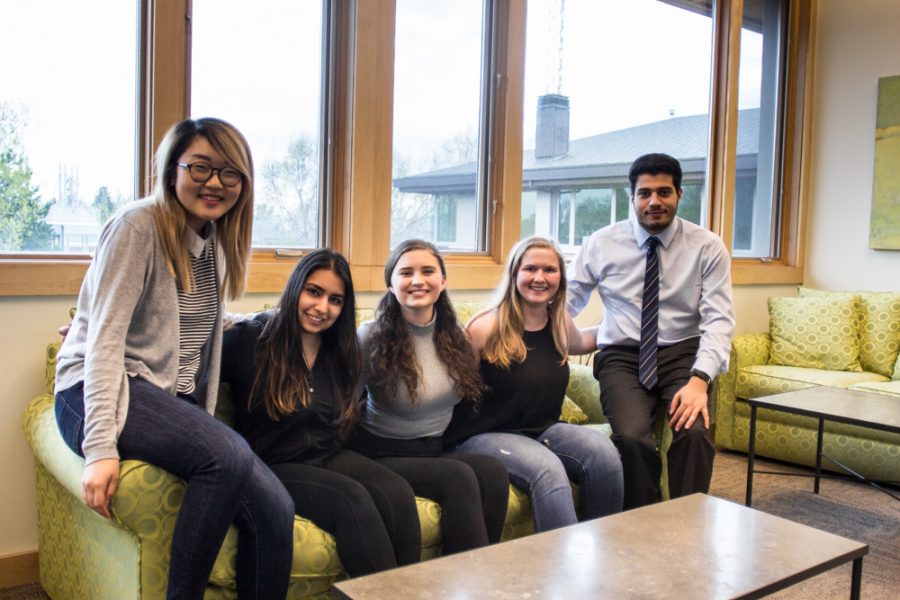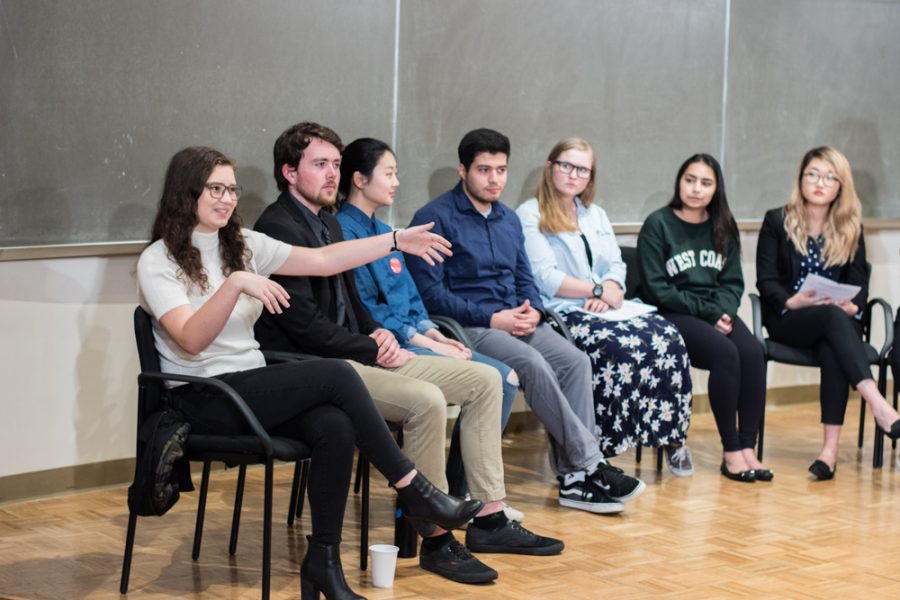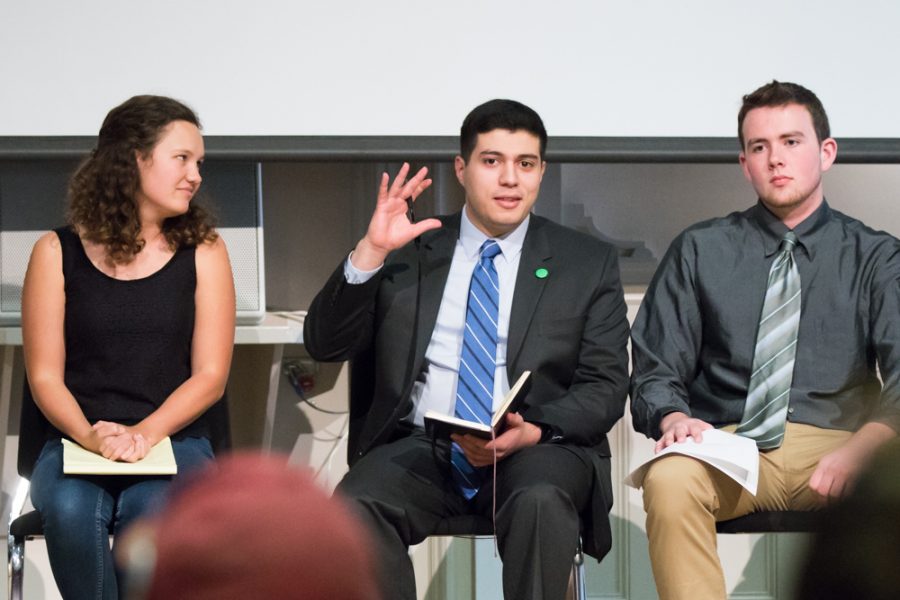As this year’s Power & Privilege Symposium approaches, the ASWC planning committee has been working to organize content, logistics, marketing and funding. While last year’s inaugural symposium was successful, attendance this year is expected to be much higher, since classes are being cancelled for the event and the anti-racism movement was formed on campus last fall.
Faculty members passed a movement in December to cancel all classes on Thursday, Feb. 20 to encourage student participation in the symposium. Several professors have included the symposium in their syllabi to encourage student participation in response to anti-racism activism and ASWC’s resolution condemning racism on campus. The planning committee is seeking proposals from members of the Whitman College community interested in facilitating a lecture, panel or workshop.
Canceling classes for the symposium was a major goal of both last fall’s anti-racism rally and the ASWC resolution passed in response to it. Having succeeded in this goal, ASWC has found itself under increasing pressure to craft a symposium capable of simultaneously meeting the expectations of the anti-racism movement and involving sections of the student body reluctant to engage in discussions about racial inequality on campus.
“[Classes being cancelled] has definitely put an added element of pressure into the mix, because now that the faculty have cancelled classes, the ball’s back in our court to ensure it was worth them canceling classes,” said junior ASWC Vice President Jack Percival. “We need to convince the faculty and the campus at large that this is a productive medium for discussing those issues.”
The planning committee is led by sophomore ASWC Special Initiatives Director Shireen Nori. Nori’s position was created by junior ASWC President Tim Reed this year. As spiecial initiatives director, she oversees special projects for ASWC, including the Power & Privilege Symposium. While most content is yet to be finalized, Nori hopes this year’s symposium will deal with race, gender and other sorts of diversity issues.
“Our hope is that by giving the opportunity for students to create a workshop, or having workshops and panels that can apply to very different experiences, we can bring in students who wouldn’t normally go to an event [about race or gender],” said Nori.
The keynote speaker for the symposium will be Brown University Professor of Africana Studies Tricia Rose, who teaches and acts as the director of the Center for the Study of Race and Ethnicity in America. Rose will speak on Wednesday, Feb. 19, the evening before the symposium.
Organizing the symposium requires multiple components other than deciding the content, including the logistics of reserving spaces for presentations, organizing the schedule, raising publicity and finding funds for the symposium. While ASWC will supply at least $2,000, it hopes additional funding from other sectors of the college will provide the event with a budget of roughly $30,000.
If they receive enough funding, ASWC hopes to provide free food during the symposium and close the dining halls, in a similar format to that of the annual Whitman Undergraduate Conference. This would provide students with yet another incentive to attend the symposium.
“From my point of view, there’s not an excuse not to attend the symposium. It is your job as a Whittie to get educated, and that’s what we’re here to do,” said senior Paige Joki, chair of the content subcommittee.
Increasing student involvement in the symposium was the major motivation behind the faculty’s decision to cancel classes for the day to open up students’ schedules. The faculty resolution passed with near-unanimous support after a brief delay to resolve issues with scheduling raised by science departments. The science departments must cancel labs for a full week if one section of the class meets the day classes are cancelled. This issue was resolved by scheduling the symposium the week of Presidents’ Day, since many labs were already cancelled for that week.
“I hope to see a lot of the administration there. And I hope to see a lot of folks, including students and faculty who may not feel compelled to attend, step out of their comfort zone and attend an event like this because I think there’s a lot that people can learn and a lot of trust-building that can occur in a context like this,” said Assistant Professor of Politics Melisa Casumbal-Salazar.
Though the symposium enjoys widespread support among faculty, some remember past incidences of racism on campus which occurred in the last decade, such as when two students wore blackface to a Greek party in 2006. These issues were addressed at the time, but the consequences of them failed to change a campus culture that many students of color still find unwelcoming.
“The symposium is not a Band-Aid that’s going to fix this. It’s just part of the process. I hope that there will be many different prongs to the approach,” said Associate Professor of History Elyse Semerdjian.
Semerdjian is the chair of the encounters curriculum subcommittee, and she said in an email that she takes the measures called for by the ASWC anti-racism resolution seriously, and she seeks to continue to diversify the course syllabus.
This year will prove critical for the Power & Privilege Symposium, since ASWC and the administration have been searching for ways to combat racism on campus. Should it prove itself an effective means for increasing campus dialogue about race, it will be more likely to return in future years.
“I think this is definitely a shining moment to prove the efficacy and worthwhile nature of having the Power & Privilege Symposium and [to] have it become something that is happening every year,” said Reed.









